CONTINGENCY OPERATING LOCATION ADDER, Iraq - Brig. Gen. Gerald E. Lang, the Multi National Division - South deputy commanding general for support, visited local shaykhs at a private residence near Contingency Operating Location Adder, Iraq, for a key-leader engagement, to discuss how the drawdown of forces in Iraq will affect the shaykhs' area.
"My main goal with Shaykh Uday today was to discuss the drawdown of forces and his assistance ... to maintain security on route Tampa," said Lang, a Sauk Rapids, Minn., native.
One of the main discussion points was the process of selecting contractors for area projects, said Lang.
"I assured them that we accept contracts from everybody, we judge all the contracts equally," he said. "Governors or provincial council chairman want us to use their selected contractors - many times their contractors are relations. We will not allow ourselves to get into that corrupt type business ... We will pick the contractor best suited for the job."
Lang said the main considerations for picking a contractor are the prices they bid, their past history and the quality of work they provide.
Shaykh Saheh Fahed Al-Shershab, a shaykh of the Al-Bdoor tribe, said, through an interpreter, he would normally go through the Americans to get a contractor to fix any problems he had in his area, but many of the responsibilities that once rested on the Americans are carried out by the mayor, as the drawdown progresses.
He said the meeting with Lang was designed to enhance their relationship with U.S. forces, and discuss business in the area and the new process for selecting contractors.
Spc. Lina J. Michael, an Arabic interpreter with the 36th Sustainment Brigade out of Temple, Texas, said meetings like this keep the local population informed and let them know that U.S. forces work with them even as they prepare for the drawdown. Maintaining good relations in the area keeps Soldiers safe, she said.
"Visits like that show the Iraqi side that we are still working with them and we can also hear their opinion, what they are really wanting from us," said Michael. "If we keep working with them, they will keep securing the area for our troops."
Lang said the safety of his troops on the road was on the forefront of his mind throughout the meeting.
"What I would like to see is continued support from (Shaykh Uday) and his tribe at identifying criminals, identifying extremist groups that continue to put (improvised explosive devices) on the road, and also to have him work closely together with the Iraqi Army," said Lang.
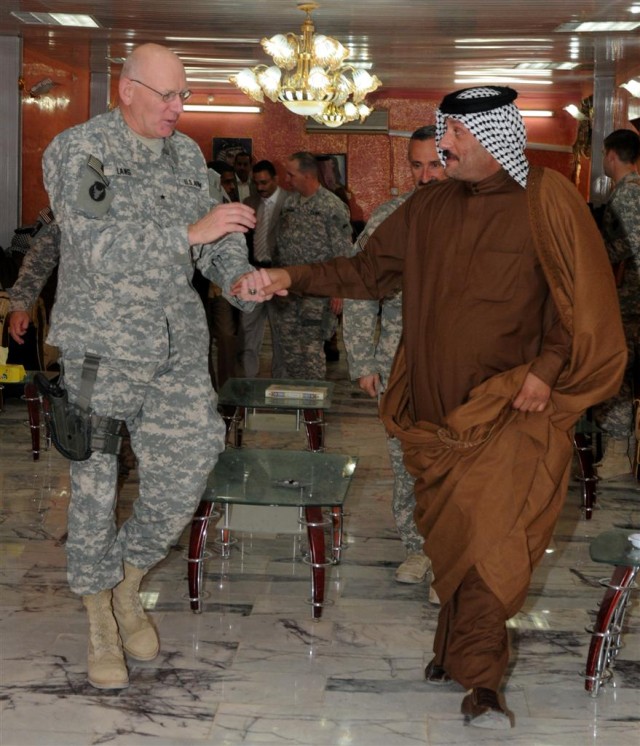
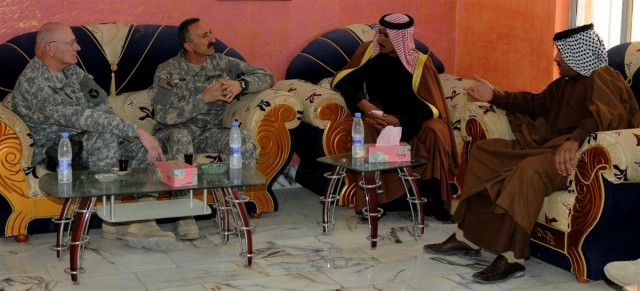
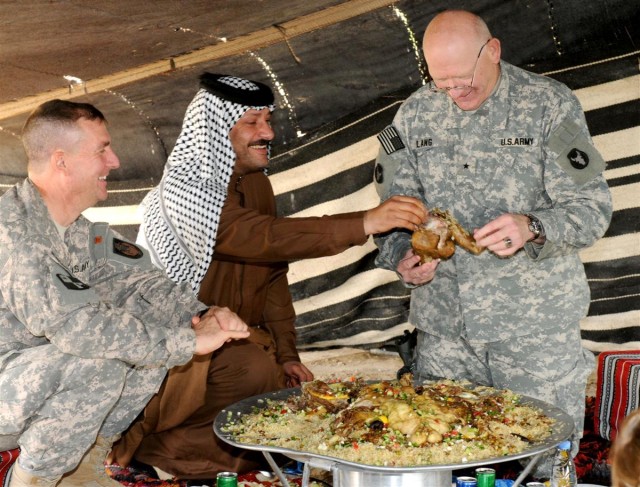
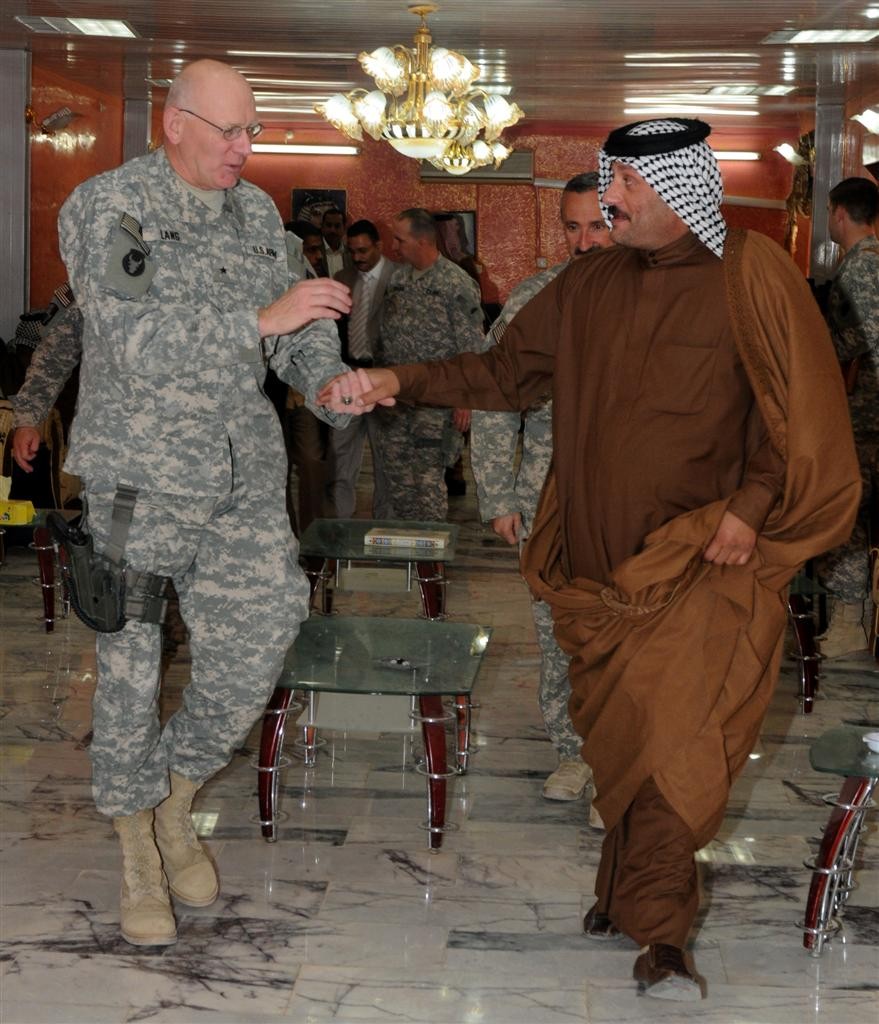
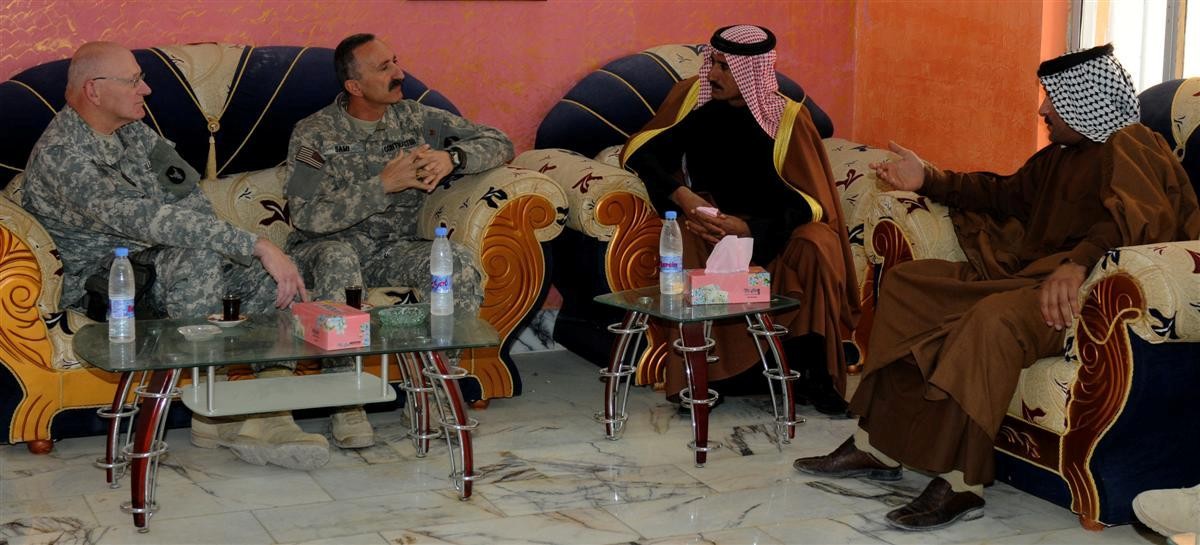
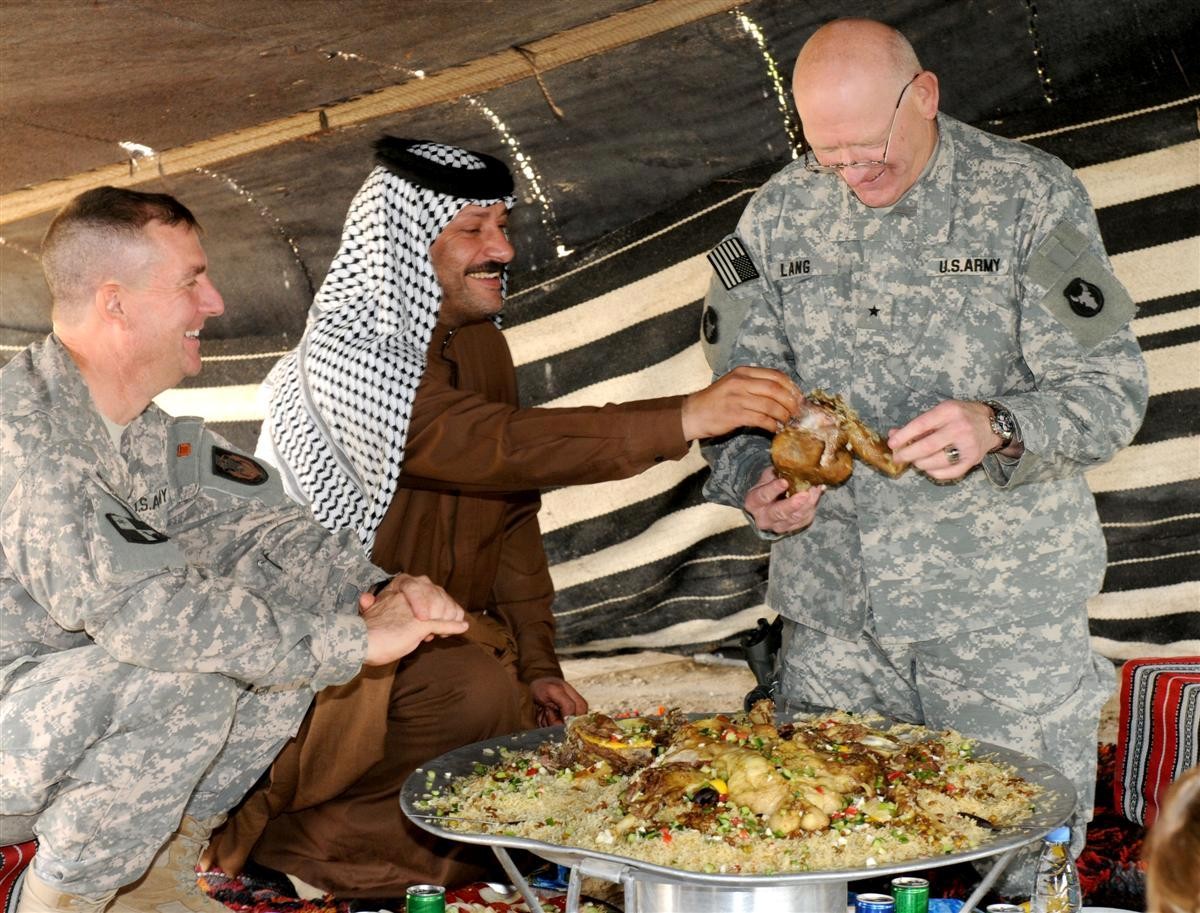
Social Sharing